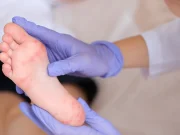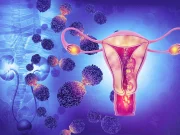Men who have sex with men and transgender women should be offered a prescription for doxy PEP for preventing STIs
By Elana Gotkine HealthDay Reporter
WEDNESDAY, June 5, 2024 (HealthDay News) — In clinical guidelines issued by the U.S. Centers for Disease Control and Prevention and published June 4 in the agency’s Morbidity and Mortality Weekly Report, recommendations are presented for the use of doxycycline postexposure prophylaxis (doxy PEP) for preventing sexually transmitted infections (STIs) in gay, bisexual, and other men who have sex with men (MSM) and transgender women (TGW).
Laura H. Bachmann, M.D., from the CDC in Atlanta, and colleagues note that MSM and TGW who have had a bacterial STI (specifically syphilis, chlamydia, or gonorrhea) diagnosed in the past 12 months are recommended to receive counseling for use of doxy PEP for preventing these infections. Providers should offer persons in this group a prescription for doxy PEP to be self-administered within 72 hours after having oral, vaginal, or anal sex following shared decision-making. The recommended dose is 200 mg, which should not be exceeded within 24 hours.
When offered, doxy PEP should be implemented in the context of a comprehensive sexual health approach, including counseling for risk reduction, screening and treatment of STIs, recommended vaccination, and linkage to HIV pre-exposure prophylaxis, HIV care, or other services as appropriate. Individuals who are prescribed doxy PEP should undergo bacterial STI testing at baseline and every three to six months thereafter. Ongoing need for doxy PEP should also be assessed every three to six months. HIV-negative MSM and TGW should undergo HIV screening.
“The available evidence in the context of increased national incidence of syphilis, chlamydia, and gonorrhea supports consideration of this approach for MSM and TGW at substantial risk for acquiring bacterial STIs,” the authors write. “These guidelines will be updated as additional data become available.”
Copyright © 2024 HealthDay. All rights reserved.



















